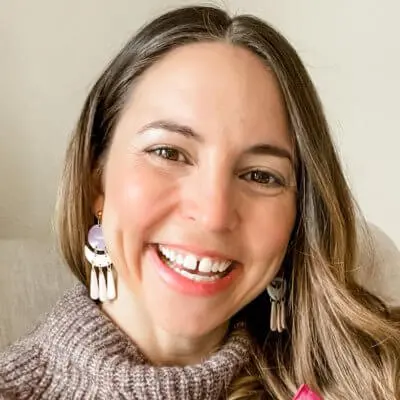Key Takeaways
- After relocating, 69% of Americans struggled to find a new doctor, and 30% are still without a healthcare provider.
- Nearly 1 in 5 report health issues worsened due to delays in finding a new doctor.
- 41% of Americans don’t know how to move their medical history to their new healthcare provider.
- Over half (53%) support using an AI-driven system to handle and transfer their medical records.
- 77% of recent movers consider online access to medical records essential when choosing a provider, and 48% look for digital tools like electronic health records (EHR) and online scheduling.
Moving to a new area disrupts many aspects of daily life, but perhaps none more critical than healthcare continuity. Medical history and provider relationships are vital to quality care, and how patients establish new healthcare connections after relocating can significantly impact their well-being.
Tebra surveyed 1,009 Americans who moved in the past 2 years to understand the challenges of finding new healthcare providers and transferring medical records in an increasingly digital healthcare world.
The post-move healthcare provider gap
Relocating can interrupt access to quality healthcare, making it hard for Americans to maintain wellness routines due to new networks, unfamiliar providers, and limited options.

More than two-thirds of Americans (69%) have struggled to find a new doctor, with nearly one-third still lacking a healthcare provider. These difficulties went beyond inconvenience — about 1 in 5 patients reported worsening health issues due to delays in securing new medical care. Many recent movers faced extended periods without consistent care, with 1 in 5 spending 6 months or longer searching for a new healthcare provider.
The search for new providers disrupted established health routines for 76% of recent movers. Another 46% missed or delayed appointments, averaging 2 postponed medical visits per person.
Recent movers identified which types of healthcare providers were most challenging to secure after their move:
- Primary care physician: 52%
- Dentist: 36%
- Specialist (e.g., cardiologist, neurologist): 23%
- Therapist or counselor: 22%
- OB-GYN: 22%
- Dermatologist: 14%
Seeking care at an independent medical practice could help those struggling to secure timely appointments. These smaller practices often prioritize strong patient-provider relationships, offering a more personalized and attentive approach. This focus can help patients quickly establish trust and maintain their wellness routines in a new community.
Transferring medical history
Moving medical records to new healthcare providers can be a major challenge in modern healthcare.

Our study results point to a gap around medical record transfers: 41% of Americans said they don't know how to move their medical history to a new provider. This uncertainty varied significantly by generation — Gen Z struggled the most, with 49% lacking knowledge about the transfer process and 42% finding it challenging when attempted. Gen X demonstrated the highest level of understanding, with 69% knowing how to manage their medical record transfers.
The complexity of record transfers required 39% of recent movers to make multiple attempts to successfully transfer their medical records. These challenges may explain why more than half of Americans (53%) expressed support for using AI-driven systems to handle and transfer their medical records.
Independent healthcare practices, with their patient-centered focus, often take extra steps to ensure a smoother transition for new patients, helping to alleviate the stress of managing medical history transfers.
Choosing providers that leverage modern EHR systems can further streamline this process. Secure and efficient electronic transfers reduce hassle and ensure continuity of care, making it easier for patients to resume their healthcare routines without unnecessary delays.
Digital access matters
Patients increasingly prioritize digital accessibility when selecting new medical providers after a move.

Online access to medical records was a crucial consideration for 77% of recent movers choosing a new provider, with women placing particularly high importance on this feature (83%) compared to men (72%).
Across generations, Gen X led this preference at 82%, followed by Gen Z at 78% and Millennials at 75%. Beyond medical records, 48% of movers specifically sought providers offering digital tools like EHRs (electronic health records) and online scheduling, with Gen Z showing the strongest preference at 53%.
Many independent practices have adopted technology to meet growing patient expectations, offering online portals for medical records, secure messaging, and appointment scheduling. Their blend of personalized care and modern convenience sets smaller practices apart in today's healthcare industry.
A majority of recent movers (80%) reported that their new providers offered accessible digital tools, including EHRs, online scheduling, and messaging capabilities. The value of these digital solutions was particularly evident in appointment management — nearly all patients (97%) indicated that digital reminders and follow-ups via email or text helped them maintain their healthcare schedule.
Navigating healthcare after moving
The transition to new healthcare providers after relocating remains a significant challenge for Americans, with implications ranging from disrupted care routines to worsened health conditions. While digital solutions offer promising ways to streamline medical record transfers and provider selection, many patients still face obstacles in maintaining continuous care.
Smaller independent practices can help address these challenges by combining modern technology with personalized, patient-centered care. By focusing on the individual, these practices offer smoother transitions and prioritize patient well-being during critical periods of change.
Methodology
We surveyed 1,009 Americans who have relocated within the past two years to explore their experiences with finding new healthcare providers and transferring medical records. The data was collected in November 2024.
About Tebra
Tebra, headquartered in Southern California, empowers independent healthcare practices with cutting-edge AI and automation to drive growth, streamline care, and boost efficiency. Our all-in-one EHR and billing platform delivers everything you need to attract and engage your patients, including online scheduling, reputation management, and digital communications.
Inspired by "vertebrae," our name embodies our mission to be the backbone of healthcare success. With over 165,000 providers and 190 million patient records, Tebra is redefining healthcare through innovation and a commitment to customer success. We're not just optimizing operations — we're ensuring independent practices thrive.
Fair use statement
Feel free to share this article non-commercially to spread awareness of the healthcare challenges faced by recent movers. Please link back to our page to credit Tebra as the source.
Subscribe to The Intake:
A weekly check-up for your independent practice

Suggested for you
Get expert tips, guides, and valuable insights for your healthcare practice









